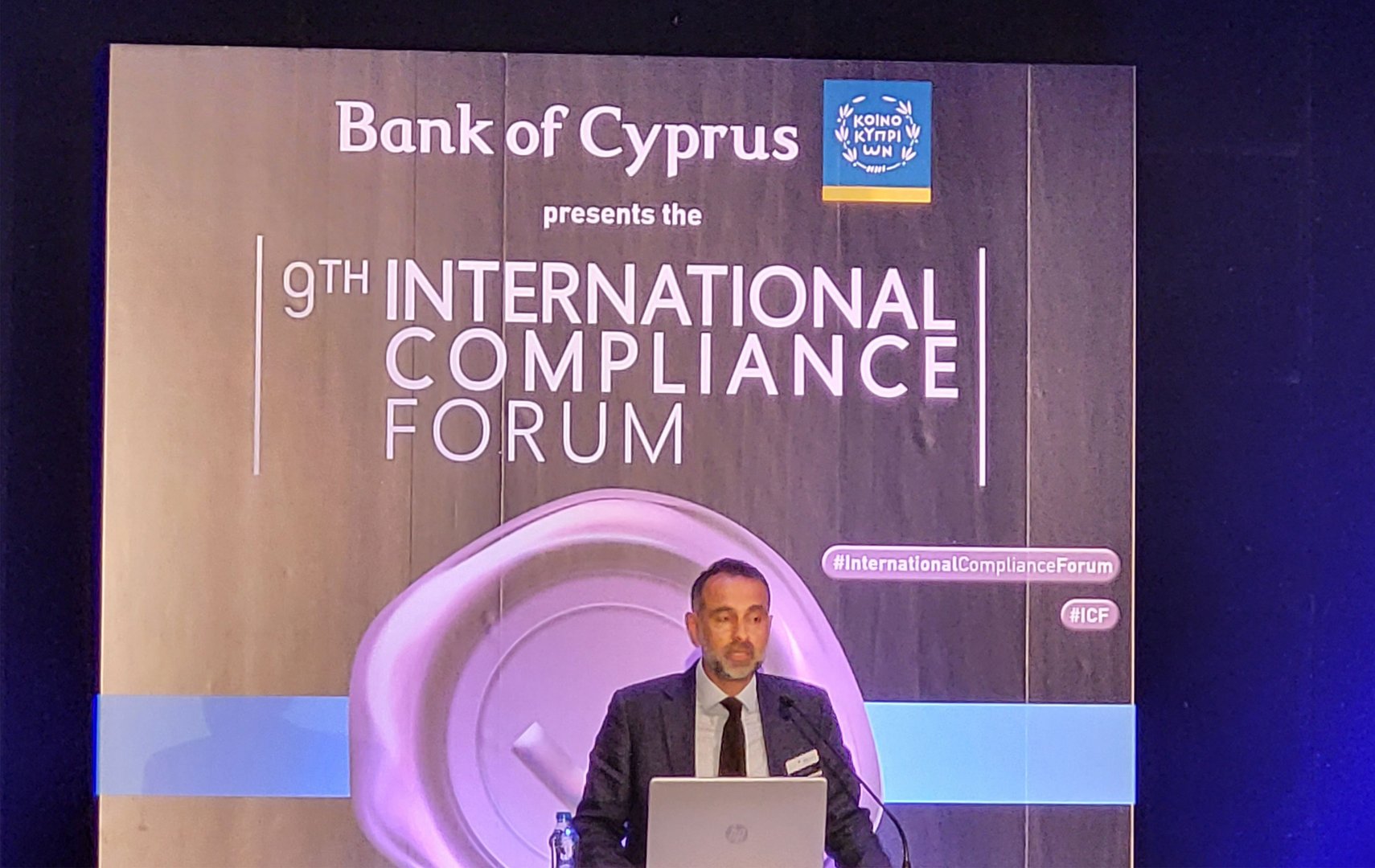The 9th International Compliance Forum held in Nicosia on Friday highlighted the need for precision, adaptability, and collaboration to ensure the effectiveness of sanctions.
The event, organised by IMH and hosted by the Bank of Cyprus, brought together experts to explore the multifaceted world of sanctions and their profound impact on global affairs.
Konstantinos Trikoupis, Head of the anti-money laundering and counter-terrorism financing department at the Central Bank of Cyprus, started the forum by shedding light on the necessity of harmonising sanctions and ensuring that the necessary resources are available for their enforcement.
He then underlined the importance of sanctions in the Cypriot economy and how they should aim to facilitate effective enforcement.
British High Commissioner to Cyprus Irfan Siddiq also attended the event and took the stage to present the Uk’s approach to sanctions. He highlighted the UK’s unique perspective on sanctions, emphasising that several measures are wielded as tools of foreign policy to induce behavioural change in the entities they target.
“However, it’s essential to point out that the application of some sanctions is intrinsically tied to the UK’s domestic legal framework,” he said.
Siddiq outlined three primary purposes for imposing sanctions.
“First, they serve to ‘prevent’, effectively striving to modify the behaviour of those targeted,” he said.
“Secondly, sanctions aim to ‘disrupt’, making it more challenging for those who resist behavioural changes to access resources.
“Lastly, sanctions are intended to ‘signal’ the targeted entities, so that even if their assets fall outside the direct purview of the sanctions, they remain stigmatised,” Siddiq said.
He was keen to stress that sanctions don’t function in isolation but are part of a broader framework of foreign policy.
Offering an illustrative example of how sanctions can be effective, Siddiq referred to the sanctions imposed on Russia following its invasion of Ukraine.
Collaborating with the EU and the G7, the UK took part in collectively imposing severe sanctions on Russia, creating one of the strictest packages of sanctions ever enforced on a major economy.
“The UK has imposed sanctions on over 1,600 individuals and entities since the start of the invasion,” Siddiq said.
“These encompass 29 banks, representing over 90 per cent of Russia’s banking sector, and 129 oligarchs, with a cumulative net worth of 145 billion pounds.
“Moreover, more than £20 billion of bilateral trade between the UK and Russia now fall under full or partial sanctions. Consequently, Russian imports to the UK have plummeted by 99.7 per cent, and UK exports to Russia have fallen by 75.5 per cent.
“Under this framework, assets worth more than £80 billion have been frozen, rendering them inaccessible for the financing of Putin’s war machine,” the High Commissioner explained.
Siddiq’s presentation was followed by an array of insights from other speakers.
Marcus Pleyer, Deputy Director-General at the German federal ministry of finance, stressed the importance of embedding compliance values deep within a company’s DNA, ensuring that compliance becomes a shared responsibility.
Furthermore, discussing the ever-evolving nature of sanctions, the head of the sanctions enforcement department at the US treasury department Jacqueline Brewer highlighted the need to communicate the values underpinning sanctions effectively to ensure their successful application.
Speaking after her, Giles Thomson, the director of the financial sanctions implementation office (OFSI) at the UK’s treasury, pointed out that modern sanctions are increasingly complex and precise.
“Despite the challenges posed by sanctions, we need to protect the critical role played by various sectors, such as finance, legal, and cryptocurrencies, in sanctions enforcement,” he said.






Click here to change your cookie preferences